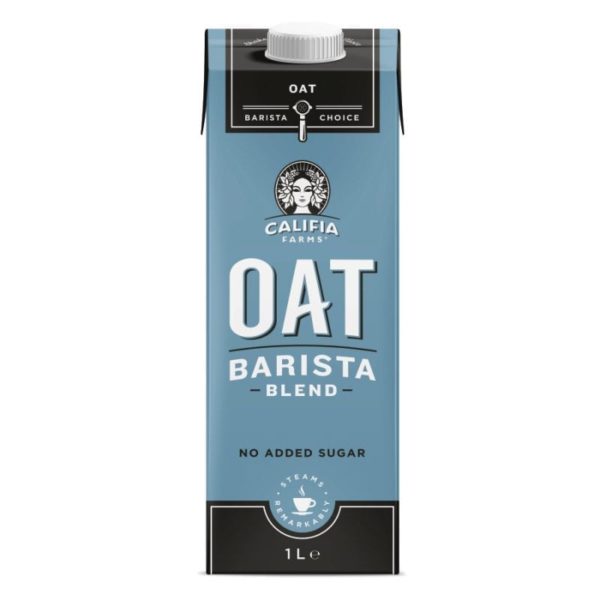Plant-based milks have significantly grown in popularity, especially in the realm of coffee-making, presenting coffee baristas with a myriad of options to cater to diverse dietary preferences. Delving into the world of plant-based milks and coffee, it becomes crucial to weigh the pros and cons of these alternatives. From almond and soy to oat and coconut, each plant-based milk brings its own unique flavour and texture to the coffee experience. In this comprehensive guide, we will explore the advantages and disadvantages of various plant-based milks when used in coffee, equipping baristas and coffee enthusiasts alike with the knowledge to make informed choices.
Introduction to Plant-Based Milks in Coffee
Overview of Plant-Based Milks
Plant-based milks offer a sustainable and often healthier alternative to traditional cow’s milk, and their use in coffee is on the rise. These milks are derived from a variety of plant sources, including nuts, grains, and legumes, each undergoing a unique process to extract the liquid. The result is a diverse array of flavours and nutritional profiles that can complement or transform the taste of coffee. Baristas now have the opportunity to experiment with different types of plant-based milks to meet customer demands for dairy-free options. As consumers become more health-conscious and environmentally aware, the choice of milk can be as important as the choice of coffee beans. Understanding the characteristics of each plant-based milk is key to crafting the perfect cup for every coffee drinker’s palate.
Rise of Plant-Based Milks in Coffee Culture
The integration of plant-based milks into coffee culture reflects a broader shift towards plant-based diets and sustainability. Consumers are increasingly seeking out dairy alternatives for ethical reasons, dietary restrictions, and environmental concerns. This demand has prompted coffee shops to expand their menus, offering a selection of plant-based milks that cater to varying tastes and health needs. The trend also aligns with the growing movement of conscious consumerism, where individuals make purchasing decisions that align with their values. Coffee baristas have embraced this evolution, becoming skilled in the art of pairing plant-based milks with different coffee blends, ensuring that the integrity of the coffee’s flavour is maintained or enhanced. The rise of plant-based milks in coffee culture is not just a trend, but an indication of changing consumer habits and the coffee industry’s adaptability.
Understanding Different Types of Plant-Based Milks
Almond Milk: Pros and Cons for Coffee Baristas
Almond milk is a popular choice for coffee enthusiasts looking for a lighter alternative to dairy. One of its advantages is the subtle nutty flavour it imparts, which can complement the coffee without overpowering it. It’s also low in calories and contains no cholesterol, which appeals to health-conscious consumers. However, almond milk presents challenges for coffee baristas, especially when it comes to achieving the perfect froth for lattes and cappuccinos. It tends to separate more easily under heat and requires careful handling to create a satisfactory texture. Additionally, the environmental impact of almond milk production, particularly water usage, is a concern for some customers. Despite these challenges, its popularity endures, making it a staple in the array of plant-based milks offered by coffee shops.
Soy Milk: Pros and Cons for Coffee Baristas
Soy milk has long been a favourite among plant-based milks for coffee baristas due to its creamy texture and stability under heat. It froths well, making it a suitable option for espresso-based drinks. Rich in protein, soy milk can create a satisfying mouthfeel that mimics that of whole dairy milk. In terms of nutrition, it’s a great source of essential amino acids and often comes fortified with vitamins and minerals. On the downside, soy milk has a distinctive taste that might not blend seamlessly with all coffee types. Some customers may also be concerned about potential allergens or the presence of GMOs in soy products. Furthermore, the quality of the froth and taste can vary between brands, so baristas need to select their soy milk with care to ensure consistency in their coffee offerings.
Oat Milk: Pros and Cons for Coffee Baristas
Oat milk has surged in popularity among coffee aficionados for its remarkable ability to mimic the creaminess and richness of dairy milk. It’s naturally sweet, which can enhance the flavour of coffee without the need for added sugar. Oat milk also froths excellently, providing a silky texture that’s ideal for lattes and cappuccinos. From an environmental perspective, oat milk is more sustainable than some nut-based milks, requiring less water to produce. Nevertheless, oat milk has a few drawbacks. Its thickness can sometimes overpower lighter coffee roasts, and it contains more carbohydrates than other plant-based milks, which might not suit everyone’s dietary preferences. Furthermore, the quality of oat milk can vary widely between brands, so it’s crucial for baristas to choose one that steams well and complements their coffee’s profile.
The Impact of Plant-Based Milks on Coffee Taste
The Science of Plant-Based Milks and Coffee
The interaction between plant-based milks and coffee is a matter of science. The acidity and temperature of coffee can cause plant-based milks to curdle, which affects both the texture and taste of a coffee beverage. The proteins and fats in plant-based milks react differently when mixed with coffee compared to cow’s milk. For instance, the lower protein content in almond milk can result in less stable foam, while the high fat content in coconut milk can affect the mouthfeel of the coffee. The pH level of the coffee also plays a role; a more acidic coffee may require a plant-based milk with higher stability. Understanding these scientific principles is essential for coffee baristas as they can then select the right type of plant-based milk to create the desired taste and presentation in their coffee drinks.
How Different Plant-Based Milks Affect Coffee Flavour
Each variety of plant-based milk has a unique profile that can alter the flavour of coffee. Almond milk, with its subtle nutty notes, can enhance the nuttiness of certain coffee roasts. On the other hand, soy milk’s creaminess often works well with bold, rich coffee flavours but can introduce a slight bean-like taste. Oat milk is celebrated for its natural sweetness and can add a touch of caramel-like flavour to coffee, which is especially noticeable in lighter roasts. Coconut milk can impart a tropical hint, which may or may not complement the coffee depending on the beans’ origin and roast profile. Understanding these nuances is crucial for coffee baristas as they need to balance the milk’s taste with the coffee’s inherent flavours. The goal is to achieve a harmonious blend where neither the coffee nor the milk overshadows the other.
Practical Tips for Using Plant-Based Milks in Coffee
The Art of Frothing Plant-Based Milks
Frothing plant-based milks is an art that requires understanding the unique properties of each alternative. For instance, almond milk needs gentle heating and swift frothing to avoid separation. Baristas often prefer soy milk for frothing due to its protein content, which helps in creating stable, airy foam similar to dairy milk. Oat milk is another favourite because it produces a creamy texture, but it requires a careful approach to prevent excessive thickness. Temperature control is critical; overheating can destroy the delicate structure of plant-based milks, leading to a lack of foam. Using a steam wand at the right angle and depth can create the perfect microfoam for a smooth latte or cappuccino. Additionally, some brands offer barista editions specifically formulated for better frothing results, which can be beneficial for those new to working with plant-based milk alternatives.
Best Plant-Based Milks for Different Coffee Drinks
Selecting the best plant-based milk for different coffee drinks can significantly enhance the beverage’s overall quality. For a rich and creamy latte, baristas might opt for oat milk, which froths well and adds a touch of sweetness. Soy milk is a versatile choice for a variety of drinks, from flat whites to mochas, as it provides a neutral base and creates a smooth froth. Almond milk’s light and nutty flavour pairs well with iced coffee, providing refreshment without heaviness. Coconut milk, with its tropical notes, is suited for flavoured drinks where its distinct taste can be a feature rather than a distraction. When it comes to macchiatos or cortados, where milk’s role is to complement rather than dominate, a well-frothed almond or soy milk can be ideal. Ultimately, the key is to match the milk’s flavour profile and frothing characteristics with the coffee drink to achieve a balanced and enjoyable cup.
Final Thoughts on Plant-Based Milks and Coffee Baristas
The rise of plant-based milks is reshaping the role of coffee baristas, who must now be adept in the nuances of dairy-free alternatives. The ability to choose the right plant-based milk for a specific coffee drink and customer preference has become an integral part of the barista’s skill set. Baristas are at the forefront of this dairy-free movement, acting as both experts and educators for consumers exploring plant-based options. As the demand for plant-based milks continues to grow, baristas will play a key role in influencing the future trends of the coffee industry. Their feedback on customer preferences and the functionality of different milks can help suppliers improve their offerings. In conclusion, plant-based milks and coffee baristas will continue to evolve together, paving the way for a more inclusive and sustainable coffee experience.
Contact us for further information or click here to request a wholesale account.




